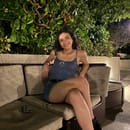During my sophomore year of high school, I was best described as “locked out.” I would spend more time searching for answers online than it would have taken to actually complete assignments. I would skip classes, or school entirely, and I had zero interest in learning or improving. By the time I was in senior year, I was president of two clubs, I had received a 1590 on my SAT and there was little I valued more than knowledge. I have been both: the person who couldn’t care less and the one who couldn’t care any more.
I was always a decent student, I (almost) always finished with As and Bs, but I was driven entirely by a desire to maintain decent grades and appease my parents. I thought this was what drove those who I called the “school kids,” and never understood why they worked so hard when they could just cheat and obtain the same results. It’s not that I had never tried; I’d enter every year with the goal of becoming a straight-A student, but I would always stop caring, and this endeavor always dissolved within a month.
At the end of my sophomore year, I decided to join Highlights, my high school’s magazine, after it was advertised to me as a “free period.” It was not, but I am so grateful to the people who needed to fulfill a recruitment quota for lying to me. If there is one decision I am grateful I made, it’s joining Highlights.
For the first time, I was surrounded by people who respected hard work and being educated instead of fitting beauty standards, using illegal substances and receiving male attention. I met the people who, to this day, are the smartest people I know, and they somehow became my best friends. I learned that these people didn’t care about the letters on their report cards, they cared about growing their knowledge and improving their skills. When I submitted my first article for Highlights, I received about a million edits, but my feedback showed potential. Despite having received an A for completion, I worked harder on the next one, wanting to improve instead of just getting it over with, and I felt proud when I received more positive feedback. This only made me want to work harder. I had discovered the powers of academic validation.
Now that I was always around peers who knew the definition of almost every word except “laziness,” cheating was no longer just what you did, and academic integrity was the bare minimum. So I began trying in school.
In all honesty, more than sophomore-year me not caring about being smart, I just didn’t believe I could be. And even in junior year when I became diligent about my studies and my grades began improving, I still felt dumb. I would go to the library with my friends after school, but I was always the last one left after everyone went home, not because I was doing more, but because it took me so much longer to do everything. Receiving an ADHD diagnosis helped me realize I wasn’t incapable, I just needed to work harder and longer, but I still never saw results nearly as rewarding as the ones achieved by the people working half the time as me. I remember studying for days for an APUSH exam and making a study guide. My brilliant best friend Ava did not study and merely looked over the study guide minutes before the exam. She got an A and I got a B. We still got two of the highest grades in the class, but this solidified my belief that I would never be one of the naturally smart kids.
But I kept working hard. Junior year represented the biggest transformation of my life. Turns out, when you’re not constantly praying that a teacher won’t call on you or holding your breath hoping not to get caught cheating, life becomes a lot less stressful. The relief I felt from merely doing the right thing would have been enough to convince me to keep going, but the greatest motivation was the knowledge I gained. For the first time in my life, I was actually learning, not just getting through assignments. I learned more during junior year than I had in the previous decade. It sounds cliché, but it was as if I could feel my brain growing. One day, my friends were having one of the many intellectual debates that I would usually observe in silence, and I suddenly remembered something from history class that could support an argument. I realized knowledge is the power to contribute to important conversations, and I loved having this power.
Halfway through junior year, applications opened for the board of a club I was a member of called the Health Information Project (HIP). I was very passionate about the club, but I planned to only apply for secretary, not believing I had a semblance of a shot at President or Vice President. One day, about a week before the application deadline, I thought to myself, “Why not at least try for something I want so badly?” I applied for President, and made it through the interview round. The second and final round consisted of applicants presenting their case as to why they should be chosen, and would be decided by a vote from all members of the club. This was a popularity contest I was sure I could not win, but I had promised myself I would try. I worked tirelessly on my application, coming up with a dozen practical ideas as to how I could improve the club. When the day to present came along, I was riddled with anxiety and had a lump in my throat the entire day. In all honesty, I considered leaving early and pretending I was sick to avoid the embarrassment of receiving no votes from my peers. But I didn’t, and that afternoon, I was chosen as the 2023-2024 President of HIP. I almost stopped myself from even having a chance about a million times, and where would I be if I had? It sounds dumb, but getting HIP President is one of the most important achievements in my life thus far because it made me believe in myself and realize that I needed to push myself out of my comfort zone if I wanted to yield real results.
Then came time to study for the SAT. The difference between studying for the PSAT and the SAT was vast. It had been almost a year since I began the “new me.” I had developed my skills. I had the stamina to study long hours. I could read a lot faster because I’d been doing all the assigned readings all year, and somehow my math-problem solving skills had multiplied throughout the year. The week leading up to the exam, I spent every day from 9 am to at least 6 pm at Starbucks just running through practice tests. I would never even have fathomed to aim for a near-perfect score; my motivation, as always, was merely to do the best I could. So I didn’t rest until the exam was over. Two weeks later, I opened my score. My eyes widened and instantly emitted tears, my jaw dropped and I could not get a single word out. I could not believe it.
When I look back on my life, it’s divided in two: the time before junior year and everything after. I feel as if I’m a completely different person. “Locking in” has its downsides. I’m a lot more stressed now about exams that I used to not care about, and I went from someone who was known for how much tv they watched to being behind on most shows, but it’s nothing compared to everything I’ve gained.
Now that I’m in college, my abilities are a little more developed and I no longer have to study 20 hours a day, and when I do, it’s a lot easier. I still often feel unqualified or that I’m not good enough, but I believe in myself a lot more now. I learned a lot junior year, but I think the most important thing I learned is that it’s never too late. In a year, I became someone I never thought I could be. I’m not as good as the kids who have always tried, but I’m better than I was sophomore year, and I’ll be better tomorrow than I was today.


